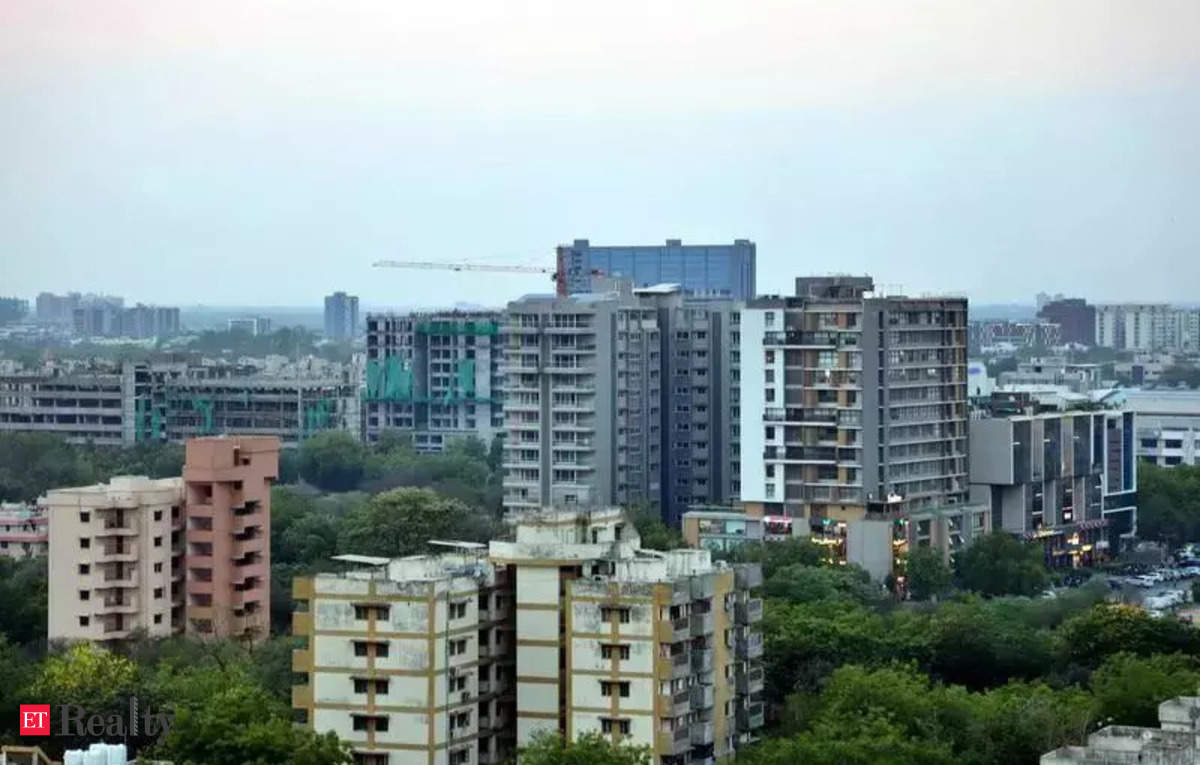HYDERABAD: Several high rises in Hyderabad have run dry this winter. And this, despite the city recording 780 mm rainfall during monsoon — 20% more than normal. The crisis is particularly severe in the plush gated communities of Cyberabad where groundwater levels, as per official records, has plunged to an alarming 15 metres to 25 metres.
Until October, this was available at 11 metres.
The parched borewells have left residents scrambling for every drop. If some are forced to make do with the limited municipal supplies, others have turned to their rainwater harvesting systems or are paying hefts charges for private tankers to meet their requirements.
Pushpa Devi, a 58-year-old home maker from a gated community in Nanakramguda, painted a grim picture of the situation. “I never imagined we’d be hauling buckets of water in an upscale gated community. We’re doing everything—reusing grey water (through STPs), minimising usage—but it’s like trying to fill a bottomless pit. It’s exhausting and unsustainable. Drinking water is rationed so strictly that we’re left choosing between staying hydrated, cooking a proper meal, or cleaning our houses. We are ordering packaged drinking water every other day,” she said.
The cost of water tankers for a month is anywhere between 10 lakh and 15 lakh.
Filtered water from STPs is limited to utilities such as cleaning and washing, further complicating basic household chores. Divya Makhnojiya, an entrepreneur from Narsingi, added, “Every morning starts with panic—will we have enough water for the day? Cooking, bathing, even washing clothes feels like a luxury now. We’re barely getting by. The rainwater harvesting system is dry, and we’re forced to stretch our drinking water supply dangerously thin. Sometimes, we have to skip basic hygiene needs just to conserve water.”
Data from the Telangana Groundwater Department reveals that areas like Kukatpally, Serilingampally, and others in the western corridor are the most affected, with average depth to water levels (DTWL) touching 17.51 metres in Sept —three times deeper than Hyderabad’s overall average of 6.29 metres. These areas are at the forefront of the city’s construction boom.
“Almost 70% of the new projects are being undertaken in Kokapet, Kondapur, Nanakramguda, and Serilingampally. Developers rely on groundwater for construction. However, once the projects are completed, most of the gated communities have rainwater harvesting projects to conserve water,” said N Ramachandra Reddy, executive member of CREDAI (National).
However, many communities are finding their existing water infrastructure insufficient. Dr Sai Ravi Shankar, president of the Federation of Gated Communities, Cyberabad and Aparna Towers, said, “For seven years, we’ve implemented rainwater harvesting, accumulating thousands of litres. However, the diminishing water levels in our dried-up borewells make it difficult to pump out the stored water effectively. Even though we stored water, it is not enough. And this is only winter,” he said.
He further shared the combination of rainwater harvesting, and currently manages water for 800 to 1,000 houses each, while municipal water is strictly reserved for drinking and cooking purposes.
In certain communities, local topography adds to the challenge. Shiv Prakash, secretary of Rainbow Vistas Rock Garden in Kukatpally, explained, “Our community is located at an elevated level above the rock bed, with four large pits. Unfortunately, due to the presence of boulders beneath the ground, water absorption is limited. We utilise a small portion for horticulture, while the majority ‘goes down the drain.'”
Urban planners and environmentalists raise an alarm over the unchecked expansion of Hyderabad’s IT corridor. Records from the municipal administration and urban development (MAUD) department reveal that between 2010 and 2014, the city’s total commercial built-up area grew by 50.7 million square feet (sft). This figure doubled to 100.4 million sft between 2015 and 2019. From 2015 to 2021, Hyderabad saw over 500 million square feet of residential area added, with experts estimating a 70% to 80% surge in built-up areas in the last three years alone. Market reports indicate that the western corridor saw 23,490 new housing units added in 2024, with projections for 2025 expecting an additional 26,000 units.
“Due to excessive concretisation, the city is facing a severe water shortage as early as Dec. Concretisation leaves no space for groundwater percolation, thereby depleting groundwater levels. Similarly, water bodies meant to recharge groundwater are polluted with sewage.
Water management is not rocket science. Better water management, including mandatory rainwater harvesting with sufficient capacity and preserving open spaces, can solve many of these issues,” said Bhupesh Malav, an urban planner, who has worked on various sustainable initiatives across India.
The ease of acquiring building permissions is another major contributor to Hyderabad’s rapid urbanisation. “In 2016, the Telangana govt introduced the Development Permission Management System (DPMS) for online approval of building plans. By 2019-2020, the Greater Hyderabad Municipal Corporation (GHMC) granted 17,538 building permissions, marking a 100% increase in four years, and this has only increased by another 50% in recent times. The rules for obtaining building permissions were relaxed to promote ease of doing business, but this has exacerbated the problem of concretisation,” said Narsimha Rao Donti, a public policy expert.
The Hyderabad Metropolitan Water Supply and Sewerage Board (HMWSSB) projected an early demand for water tankers starting Feb this year. “We are actively promoting water conservation techniques through awareness campaigns, including house visits to encourage practices like rainwater harvesting and mindful water usage. Tasks such as car washing and floor cleaning waste significant amounts of water, which we can no longer afford. With the growing population, our water bodies alone will soon be insufficient to meet demand,” said an HMWSSB official.
Source Homevior.in




